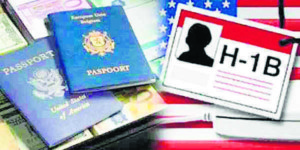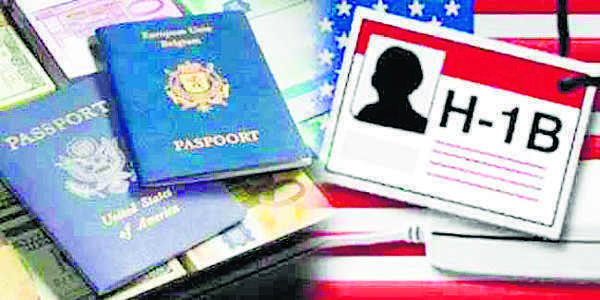 WASHINGTON: The US will start accepting petitions for H1-B visas from April 2, a federal agency announced as it temporarily suspended the premium processing of all such work visas, popular among Indian IT professionals, subject to fiscal cap.
WASHINGTON: The US will start accepting petitions for H1-B visas from April 2, a federal agency announced as it temporarily suspended the premium processing of all such work visas, popular among Indian IT professionals, subject to fiscal cap.
The H1B visa is a non-immigrant visa that allows US companies to employ foreign workers in speciality occupations that require theoretical or technical expertise. The technology companies depend on it to hire tens of thousands of employees each year from countries like India and China.
The H-1B petition filing is for the fiscal year 2019 beginning October 1, 2018, the US Citizenship and Immigration Services (USCIS) said.
The suspension of premium processing of all H-1B petitions which are subject to the annual caps is expected to last until September 10, 2018.
During this time, the USCIS said it will continue to accept premium processing requests for H-1B petitions that are not subject to the fiscal 2019 cap.
“We will notify the public before resuming premium processing for cap-subject H-1B petitions or making any other premium processing updates,” it said.
At the same time, the USCIS said while premium processing is suspended, a petitioner may submit a request to expedite an FY 2019 cap-subject H-1B petition if it meets the expedited criteria.
The USCIS said that the temporary suspension of premium processing will help it reduce overall H-1B processing time.
By temporarily suspending premium processing, the USCIS said it will be able to process long-pending petitions, which it has currently been unable to process due to the high volume of incoming petitions and the significant surge in premium processing requests over the past few years; and prioritize adjudication of H-1B extension of status cases that are nearing the 240-day mark.
The 15-day H1B Visa Premium Processing Service provides American employers with the opportunity to obtain faster processing of an H1B petition to meet their needs for employing and sponsoring a foreign worker. However, there is an additional filing fee for the service.
As an H-1B non-immigrant, the applicant may be admitted for a period of up to three years. The time period may be extended, but generally cannot go beyond a total of six years. However, there are some exceptions to it.
The H1-B visa has an annual numerical limit cap of 65,000 visas each fiscal year as mandated by the Congress. The first 20,000 petitions filed on behalf of beneficiaries with a US master’s degree or higher are exempt from the cap.
Additionally, H1-B workers who are petitioned for or employed at an institution of higher education or its affiliated or related nonprofit entities or a nonprofit research organization or a government research organization are not subject to this numerical cap.
According to the USCIS, between 2007 and 2017, it received the maximum number of 2.2 million H-1B petitions from high-skilled Indians. India was followed by China with 301,000 H-1B petitions during the same period.-PTI







